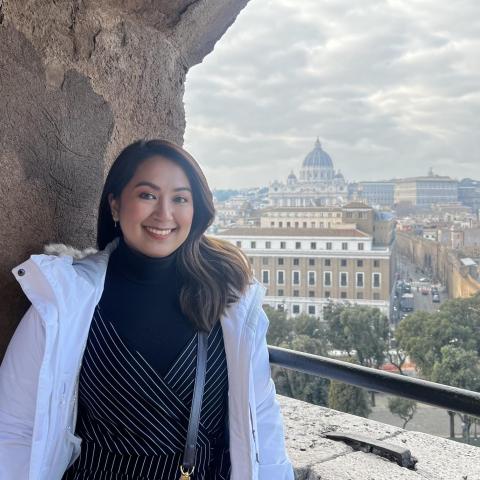Facutly Profile: Greg Hopkins: What Matters Most

Professor Greg Hopkins
Lots of energy and an enthusiasm for music have made Hopkins one of the most revered members of Berklee's Jazz Composition Department over the past 30 years. In addition to his work at Berklee, Hopkins has a jam-packed calendar with engagements to work as a performer, conductor, and composer in such far-flung places as Iceland, Iowa, Alaska, Tokyo, and eastern Europe.
Hopkins started playing trumpet at age six after his father, an amateur violinist, decided to organize a family band. It was truly by accident that Hopkins ended up with the trumpet in his hands. "My dad was planning for me to play the clarinet, but I had just broken my hand and couldn't play it," Hopkins recalls. "So he gave my brother the clarinet and handed me a cornet." Hopkins has been inseparable from three-valve brass instruments ever since.
Growing up in Detroit, Hopkins found opportunities to play in an array of musical settings and loved them all. "I played in so many different groups in high school-concert band, wind band, symphony orchestra, and dance band," Hopkins says. "I was also working with r&b groups at night."
After high school, Hopkins went to Michigan State University, where he studied math for two years. Discovering that he was doing more gigs than math problems, he changed his major to music. After earning his degree, he went on the road for six years, playing with and writing arrangements for Louis Bellson, Billy Maxted, and Buddy Rich. In the fall of 1974, Hopkins began his now three-decade career teaching at Berklee.
"The past 30 years has passed as if it was three years," says Hopkins. "I've found the real joy of being at Berklee to be the great blending of cultural and musical of ideas. The boundless talent of the faculty and students is ever-inspiring. It keeps you young and timeless."
In addition to his teaching, Hopkins has stayed quite busy as a trumpeter playing jazz, shows, and musical theater productions. Among the career highlights are performances with Dizzy Gillespie, Frank Sinatra, Stevie Wonder, Joe Williams, Tony Bennett, the Supremes, Burt Bacharach, Nancy Wilson, Lena Horne, and others. Hopkins has also found it gratifying to work on the Boston break-in production of Dancin' with Bob Fosse and Ralph Burns and on the original operatic version of Porgy and Bess.
Through the years, Hopkins has recorded a fair amount of music as well but says he much prefers live performances to recordings. "I love to play music live," Hopkins says. "To me, recorded music is somewhat of a false medium. It's like a photo of a painting; it's not the original. The photo has no brush strokes and doesn't have the same depth or dimension of the real thing. I love to be right there and see people playing live. I don't care about mistakes or wrong notes; they make the performance human."
Despite this philosophy, Hopkins is enthusiastic about his three recent CDs, which have all garnered glowing reviews in the jazz press. Okavongo features the Greg Hopkins 16 Piece Jazz Orchestra and is a retrospective of his work with the ensemble over the past 25 years. Among the many great performers appearing on the CD, which includes music by Hopkins, Wayne Shorter, and James Williams, are the late James Williams on piano as well as various Berklee alumni and faculty members.
Quintology highlights Hopkins's brilliant composing and soloing in a small-group setting, along with guitarist Mick Goodrick, drummer Gary Chaffee, bassist Jim Stinnett, and tenor saxophonist Bill Pierce. Both the quintet and the large band have been around for more than 20 and 25 years, respectively. The third recording is quite different. It's a self-titled CD of chamber jazz with the group Tre Corda, which is "the brainchild of pianist Tim Ray," Hopkins says. "It is a trio with Eugene Friesen playing cello, Tim on piano, and me on trumpet. It's an interesting group to play with because we improvise in styles other than swing and bebop."
Many are familiar with the side of Hopkins that is eager to blend styles and experiment. Last summer, Hopkins went to Fairbanks, Alaska, to premiere the double concerto Convergent Divergences for oboe and English horn, trumpet and flugelhorn, and string orchestra by Professor Emeritus John Bavicchi. According to Hopkins, the piece is quintessential Bavicchi and features no improvisation. Contemporary classical music is not unfamiliar territory for Hopkins, who has worked with numerous orchestras. Asked about walking both sides of the street for classical as well as jazz projects, Hopkins replies, "I don't consider them to be different sides of the street. To me, it's one big street and you don't have to narrow yourself to one style.
"Like my playing, my writing is very eclectic. I write mostly by ear. After years of doing this, I know what works and what doesn't, but I still experiment. Every piece is a nail biter; I'm hoping it will work. You get a picture in your mind, and then the job is to get it out onto the paper." Hopkins's current writing projects include a nonet (à la Miles Davis and Birth of the Cool), pieces for string quartet and saxophone, and music for orchestra with jazz soloists or jazz quartet.
While many composers derive great satisfaction from completing a work and giving it to others to perform, the actual playing is what intrigues Hopkins the most. "New music is the lifeblood of musicians," he says. "Playing something that no one has played before gives you energy and spirit that you can't get after a piece has been played for years. Maybe that's why I like to write so much. In my future, I see more writing and playing. But the writing will always be an adjunct to my playing."



